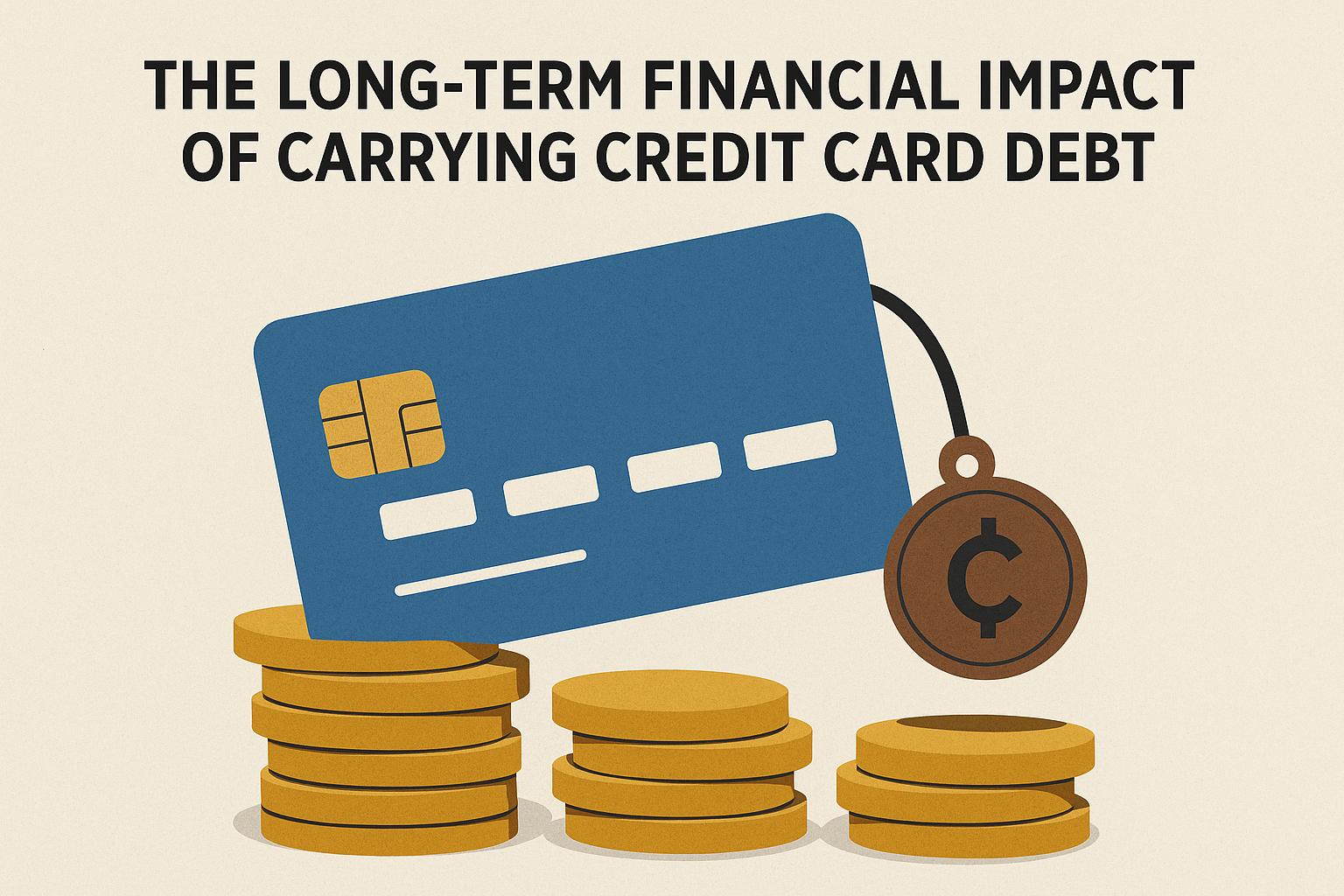The Long-Term Financial Impact of Carrying Credit Card Debt
Carrying credit card debt can have significant long-term financial consequences. Understanding these impacts can help individuals make informed decisions about borrowing and managing finances effectively. This article delves into the key aspects of how prolonged credit card debt can affect financial stability and personal well-being.
Accumulation of Interest
One of the most immediate impacts of carrying credit card debt is the accumulation of interest. Credit cards often come with high-interest rates, and when balances are not paid in full, these interest charges can grow substantially over time. As interest accumulates, repayments become increasingly difficult, often leading to a cycle of expanding debt. Interest accumulation can severely undermine one’s financial health, creating barriers to financial freedom and stability.
When interest compounds on a monthly basis, even small outstanding balances can quickly grow into substantial debt. This growth amplifies the challenge of paying off the principal amount owed, as monthly payments mostly cover the interest, letting the principal balance remain relatively stagnant. This situation can lead to a financial quagmire where individuals find themselves trapped, struggling to make a dent in their debt despite regular payments.
Impact on Credit Score
Credit card debt can also adversely affect a person’s credit score. High credit utilization ratios, which measure the percentage of credit being used compared to the overall credit limit, are a critical factor in determining credit scores. A consistently high ratio can suggest over-reliance on credit and potentially lower one’s credit score. Maintaining low credit utilization is essential for sustaining a good credit standing.
A lower credit score can have myriad ramifications. Access to favorable credit terms, such as low-interest rates and attractive loan offers, often hinges on one’s credit score. Negative impacts on the credit score due to high credit utilization can therefore impair an individual’s ability to access affordable credit options when needed, further exacerbating financial stress.
Limited Financial Opportunities
Having a significant amount of credit card debt can limit access to other financial opportunities. Individuals carrying high levels of debt may find themselves ineligible for additional lines of credit, including loans for major purchases like homes or cars. Moreover, even when credit is available, it often comes with higher interest rates due to the perceived risk, thereby increasing the overall cost of borrowing.
These limitations can extend beyond personal purchases and affect one’s ability to engage in meaningful financial planning. For example, high interest payments can eat into savings, reducing one’s ability to contribute to retirement accounts or invest in education or other growth opportunities. Being restricted in financial flexibility can have a long-term impact, limiting personal and professional potential.
Stress and Mental Health
Beyond financial ramifications, carrying credit card debt can lead to increased stress and affect mental health. The pressure to meet monthly payments, combined with anxiety over growing debt levels, can significantly impact an individual’s mental and emotional well-being. It is essential to address these issues proactively through effective debt management and financial planning.
The emotional burden of debt can manifest in persistent worry, reduced self-esteem, and even depression. Furthermore, the stress associated with financial insecurity can impair everyday functioning and diminish one’s quality of life. These psychological effects underscore the importance of recognizing and addressing the broader implications of credit card debt beyond mere financial metrics.
Reducing Long-Term Debt
There are several strategies individuals can consider to reduce and eventually eliminate credit card debt. Balancing budgets, creating a repayment plan, and seeking professional financial advice can all contribute to managing debt more effectively. Some individuals might also explore debt consolidation or negotiate terms with creditors to lighten their financial load. For more information, check out debt management resources.
Implementing disciplined budgeting can be instrumental in identifying discretionary expenses that can be curtailed to redirect funds towards debt repayment. Another approach is prioritizing high-interest debts to minimize total interest paid over time. Professional advice and resources offer tailored strategies to manage and responsibly reduce debt.
Planning for the Future
Finally, long-term financial planning is crucial for avoiding the pitfalls of credit card debt. Setting up an emergency fund, educating oneself about financial literacy, and consistently tracking expenses can go a long way in ensuring a stable financial future. By taking proactive steps today, individuals can shield themselves from the enduring impacts of credit card debt and work towards financial independence.
An emergency fund serves as a financial cushion in challenging times, mitigating the need to resort to high-interest credit solutions. Financial literacy provides the foundational tools and knowledge necessary for making informed financial decisions. These proactive measures not only address potential debt scenarios but also enhance overall financial resilience.
Conclusion
The long-term effects of carrying credit card debt are multifaceted, encompassing more than just financial strain. By acknowledging and understanding these effects, individuals can better prepare themselves to manage debt responsibly and maintain both financial health and personal well-being. Responsible debt management combined with proactive financial planning can lead to a more secure and stable financial future.


